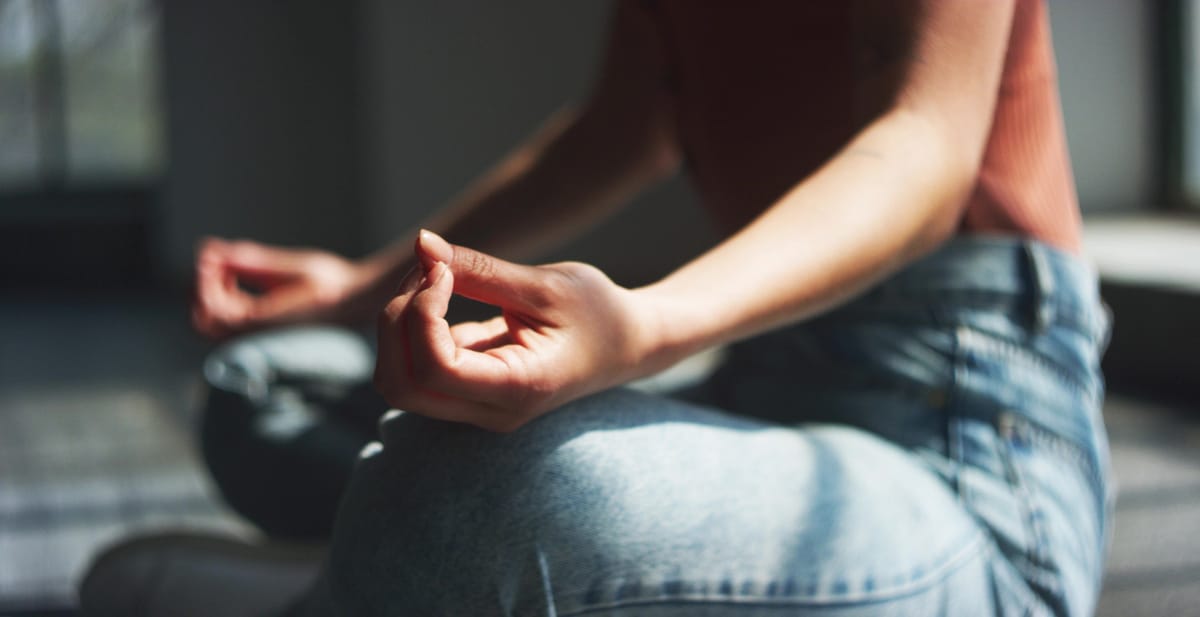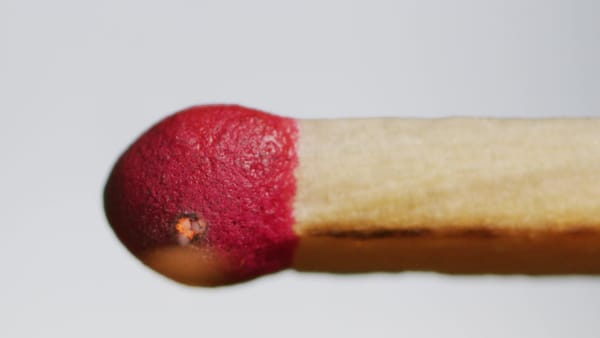Natural Remedies for Daily Stress Relief: A Deep Dive into Science-Backed Solutions
In our fast-paced world, daily stress has become almost unavoidable. From work deadlines to family responsibilities, that constant hum of tension can wear us down, impacting everything from our mood to our physical health.

Before we dive in, a quick note: this article is for informational purposes only and is not intended as medical advice. Always consult with a healthcare professional before starting any new remedy, especially if you have underlying health conditions or are taking medications. Stress can affect everyone differently, and what works for one person might not for another.
In our fast-paced world, daily stress has become almost unavoidable. From work deadlines to family responsibilities, that constant hum of tension can wear us down, impacting everything from our mood to our physical health. But here's the good news—nature offers a treasure trove of remedies that have been studied extensively for their potential to ease stress without relying solely on pharmaceuticals. Drawing from a wealth of medical studies, clinical trials, and expert insights, we'll explore some of the most promising natural approaches. We'll look at how they work, what the research says, and practical ways to incorporate them into your routine. Let's unpack this step by step, starting with herbal options and moving into lifestyle practices and nutritional supports.
Herbal Powerhouses: Turning to Plants for Calm
Herbs have been used for centuries in traditional medicine systems like Ayurveda and Chinese herbalism to combat stress, and modern science is catching up with solid evidence. These plants often act as adaptogens, helping the body adapt to stressors by balancing hormones like cortisol.
Ashwagandha: The Ancient Stress Buster
Ashwagandha, or Withania somnifera, is an evergreen shrub native to India, Africa, and the Middle East. It's classified as an adaptogen, meaning it helps regulate the body's stress response by modulating the hypothalamic-pituitary-adrenal (HPA) axis—the system's central command for handling stress.
A comprehensive 2022 systematic review and dose-response meta-analysis of randomized controlled trials found that ashwagandha supplementation significantly reduced anxiety and stress levels, with effects noticeable after just a few weeks of use. This analysis pooled data from multiple high-quality RCTs involving hundreds of participants, showing a dose-dependent benefit—typically 300-600 mg per day of root extract standardized to withanolides, the active compounds. One key mechanism is its ability to lower serum cortisol, the primary stress hormone. In a 2019 randomized, double-blind, placebo-controlled study, participants taking 240 mg daily for 60 days saw cortisol drop by up to 30%, alongside improvements in sleep quality and overall well-being.
Digging deeper, the evidence highlights ashwagandha's impact on mental health markers. A 2024 meta-analysis on the effects of Ashwagandha on stress and anxiety analyzed several trials and concluded that extracts may help reduce perceived stress and anxiety, with some studies reporting up to a 44% reduction in stress scores on standardized scales like the Perceived Stress Scale (PSS). Another 2025 systematic review and meta-analysis echoed this, noting benefits for strength, endurance, and even cognitive function, which can suffer under chronic stress. Researchers point to ashwagandha's anti-inflammatory and antioxidant properties, which protect brain cells from oxidative damage caused by prolonged stress exposure. In one trial, participants with chronic stress experienced not only lower cortisol but also enhanced GABA receptor activity, promoting a calming effect similar to some anti-anxiety medications but without the sedation.
Side effects are rare and mild, such as mild gastrointestinal upset, but it's worth noting potential interactions with thyroid medications or immunosuppressants. For those with insomnia tied to stress, a 2019 study on adaptogenic effects showed ashwagandha improved sleep latency and duration, making it a dual-threat for stress and restlessness. If you're starting out, begin with a lower dose and monitor how your body responds—consistency is key, as benefits often build over 4-8 weeks.
If you're curious about trying it, an organic ashwagandha supplement like this one from Gaia Herbs comes highly recommended for its purity and potency.
Rhodiola Rosea: Boosting Resilience and Energy
Rhodiola rosea, a hardy plant from cold, mountainous regions, has been a staple in Siberian and Scandinavian folk medicine for enhancing vitality during harsh winters. Like ashwagandha, it's an adaptogen that targets fatigue and mental fog associated with stress.
A 2022 comprehensive review of clinical trials highlighted rhodiola's ability to alleviate various stress-related symptoms, including fatigue, depression, and cognitive impairment. In one study, doses of 400-600 mg daily improved mental performance and concentration in stressed individuals, with effects kicking in as early as one week. Researchers attribute this to rhodiola's influence on neurotransmitters like serotonin and dopamine, which regulate mood, and its role in reducing oxidative stress in the brain.
More evidence comes from a 2012 systematic review suggesting rhodiola may enhance physical performance and alleviate mental fatigue, though it notes the need for larger trials. A 2011 review on herbal medicine for depression, anxiety, and insomnia provided preliminary positive evidence for rhodiola's antidepressant effects. In burnout sufferers, a trial found that 400 mg daily for 12 weeks significantly lowered stress scores and improved quality of life. Mechanisms include upregulation of ATP production in cells, helping combat the energy drain from chronic stress, and modulation of the HPA axis to prevent cortisol overload.
It's generally safe, though high doses might cause restlessness in some sensitive individuals. For those dealing with work-related exhaustion, rhodiola could be a game-changer, as it not only reduces perceived stress but also boosts endurance—think of it as nature's way of building mental stamina.
For a reliable option, check out this rhodiola supplement from Double Wood Supplements, known for its high salidroside content.
Valerian Root: Nature's Sedative for Winding Down
Valerian root (Valeriana officinalis) has a pungent smell but a powerful reputation for promoting relaxation. It's often used for sleep issues tied to stress, working by increasing GABA levels in the brain—a neurotransmitter that calms neural activity.
Clinical evidence supports its use. A 2023 randomized controlled trial found that standardized valerian extract improved sleep quality in those with mild insomnia, reducing stress-related awakenings. An earlier 2006 study on anxiolytic effects of a combination with lemon balm showed it possesses anxiolytic properties. In hemodialysis patients, valerian decreased anxiety and depression symptoms significantly, as per a study on its impact.
It's not just for sleep; combined with other herbs, it shows promise for broader stress relief. A 2025 review on herbal medicines in autism spectrum disorder noted valerian root alleviates anxiety and hyperactivity. Side effects are minimal, but avoid if pregnant or operating machinery, as it can cause drowsiness.
A top pick is this organic valerian root from Herbal Roots.
Lemon Balm: Gentle Mood Lifter
Lemon balm (Melissa officinalis) is a lemon-scented herb from the mint family, prized for its calming effects without drowsiness.
A 2021 systematic review found it effective for acute anxiety and depression, with studies showing quick mood improvements after single doses. It modulates GABA receptors, similar to valerian. A 2004 study on attenuation of laboratory-induced stress demonstrated modulation of mood through cognitive tasks.
Trials report reduced anxiety in stressed adults, with benefits for cognitive performance. For daily use, tea or capsules at 300-600 mg can help maintain steady calm.
Try this lemon balm tincture from Double Wood for easy absorption.
Chamomile: The Soothing Sip
Chamomile tea is a classic wind-down ritual, backed by science. Apigenin, its key flavonoid, binds to benzodiazepine receptors for a mild sedative effect.
A 2019 systematic review and meta-analysis showed oral chamomile reduces anxiety, with most studies noting improvements after daily use. Long-term trials for generalized anxiety disorder (GAD) found it safe and effective, reducing symptoms by up to 50%, as in a 2016 RCT and a 2009 RCT.
In one 2024 systematic review, 9 studies concluded chamomile is effective in reducing anxiety. Mechanisms include anti-inflammatory effects and GABA enhancement.
Brew a cup with this organic chamomile from FGO.
Aromatherapy: Inhaling Calm with Lavender
Essential oils like lavender engage the olfactory system, influencing the limbic brain for emotional regulation.
Multiple trials show lavender oil reduces stress. A 2019 systematic review and meta-analysis confirmed its anxiolytic effects via inhalation or massage. In postoperative settings, it lowered pain and anxiety, per a 2023 meta-analysis. A 2021 review showed substantial effects in reducing anxiety and depression.
Diffuse this organic lavender oil from Majestic Pure.
Mindful Practices: Meditation and Breathing Techniques
Meditation and Mindfulness
Mindfulness-based stress reduction (MBSR) programs, involving meditation, have robust evidence. A 2015 meta-analysis of studies found moderate reductions in stress, anxiety, and depression. A 2014 meta-analysis noted small to moderate reductions in psychological stress. Brain imaging in a 2017 review shows changes in emotion regulation areas.
Start with 10 minutes daily using apps or guided sessions.
Breathing Exercises
Deep breathing activates the parasympathetic nervous system. A 2023 meta-analysis showed breathwork improves mental health and reduces stress. Cyclic sighing lowered arousal more than meditation in a 2023 RCT. A 2019 review found diaphragmatic breathing decreases stress biomarkers.
Practice 4-7-8 breathing: Inhale 4 seconds, hold 7, exhale 8. A 2023 study on slow breathing reduced psychological stress after 12 weeks.
Physical Movement: Yoga, Exercise, and Nature
Yoga for Mind-Body Harmony
Yoga combines postures, breath, and meditation. A 2017 meta-analysis based on biosignals like cortisol showed significant stress reduction. Meta-analyses confirm lowered cortisol and improved mood, as in a 2024 review.
Even one session helps, per studies on acute effects.
Exercise: Sweat Out the Stress
Physical activity releases endorphins. A 2023 meta-analysis links regular exercise to reduced anxiety and distress. Aerobic exercise reduces cortisol, per a 2022 review.
Aim for 30 minutes most days. A 2019 meta-analysis shows physical activity protects against incident anxiety.
Forest Bathing: Nature's Therapy
Shinrin-yoku, or forest bathing, lowers cortisol by 21% per session, per a 2019 meta-analysis. Reviews show benefits for mood and immunity, as in a 2021 systematic review and a 2023 meta-analysis.
Spend time in green spaces weekly for psychophysical well-being.
Nutritional Allies: Magnesium and Omega-3s
Magnesium: The Relaxation Mineral
Magnesium deficiency exacerbates stress. Supplementation reduces anxiety in mild cases, per a 2017 systematic review and a 2024 RCT. It calms the nervous system by blocking excitatory neurotransmitters.
A 2021 study showed magnesium with vitamin B6 reduces mental health issues in stressed adults.
Opt for magnesium glycinate like this from Pure Encapsulations.
Omega-3 Fatty Acids: Brain Protectors
Omega-3s lower inflammation linked to stress. A 2024 meta-analysis showed supplementation improves anxiety. Trials like a 2011 RCT link omega-3s to reduced inflammation and anxiety.
A 2023 systematic review confirms benefits for reducing anxiety and depression.
This Nordic Naturals ultimate omega is a solid choice.
Wrapping It Up: Building a Stress-Resilient Life
Combining these remedies—perhaps ashwagandha with yoga or magnesium with breathing—can create synergistic effects, as supported by integrative reviews. Track your progress with a journal, noting changes in mood, sleep, and energy. Nature provides these tools for a reason; with evidence from RCTs and meta-analyses, they're worth exploring for holistic wellness. Remember, consistency and personalization are crucial—start small and build from there.
Footnote: As an Amazon Associate, I earn from qualifying purchases.




